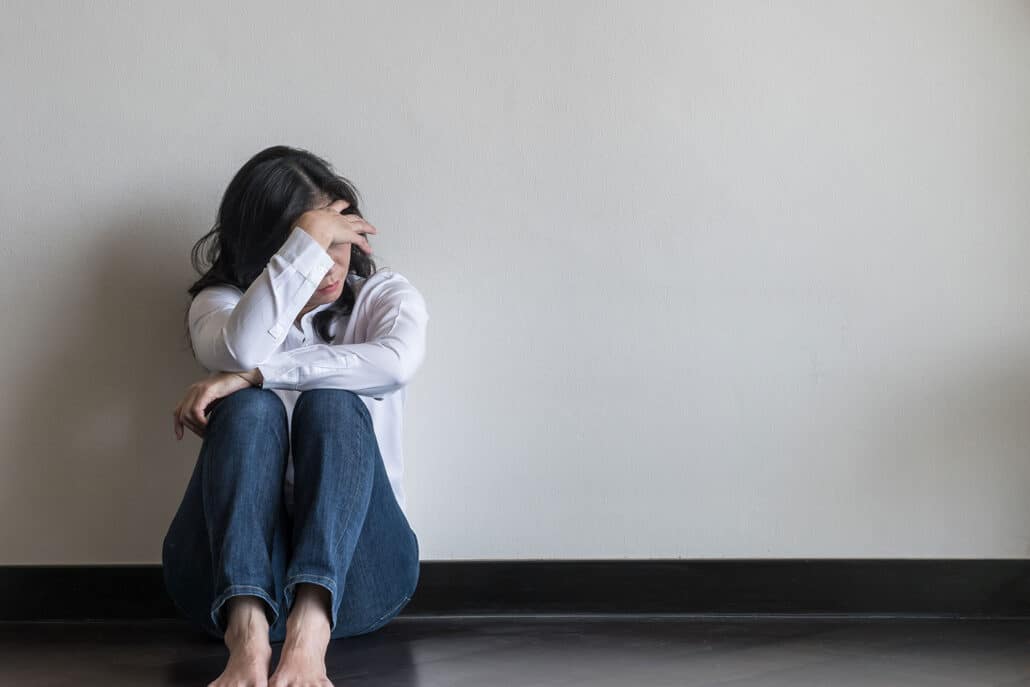There are hidden layers to New York’s beauty. The multiculturalism and the familiar yet foreign feeling it evokes in people can be rather overwhelming.
If you or a loved one are among the many living there, you might be aware of how tiring and draining it can be.
That’s why we’re here today to discuss seeking mental health treatment in NY. The obstacles New Yorkers face are unique and many-sided, and understanding these challenges is the first step toward finding the right support.
Table of Contents
Unique Challenges New Yorkers Face
New York is often described as a melting pot, where diverse cultures, people, and experiences converge. Naturally, this unique characteristic left its people dealing with distinct problems, such as:

1. High Cost of Living
Living in New York comes with a hefty price tag and, for many residents, the fear of financial failure is a constant burden.
To illustrate, the general cost of living in New York is 26% higher than the national average. The housing is 75% higher, monthly utilities are 3% higher, goods and services are 9% higher and there’s much more!
It makes sense for this persistent financial pressure to lead to chronic stress, a known contributor to other health issues like anxiety and depression.
When you’re constantly worried about paying bills or meeting basic needs, it becomes harder to maintain emotional stability. Over time, this stress can agitate existing mental health conditions or trigger new ones, creating a cycle that’s challenging to break.
2. Crowded and Noisy Environment
It’s not difficult to imagine millions and millions visiting New York yearly since it’s a beautiful state with amazing landmarks and job opportunities.
However, hearing numbers such as 265.5 million can be rather shocking. NYC alone gets around 25% of that number. While we understand its busting atmosphere is part of its charm, for many, it can also be overwhelming.
The constant noise from traffic, the crush of people on crowded streets, and the packed public transportation system contribute to sensory overload.
For individuals who are prone to anxiety or sensory sensitivities, this relentless stimulation can lead to heightened stress levels and difficulty in maintaining focus.
3. Social Isolation
New York is home to millions of people, yet it’s not uncommon for its residents to feel profoundly alone.
This paradox of social isolation in one of the world’s most populated areas stems from the fast-paced lifestyle, where everyone seems in a rush to get somewhere with little time for genuine connection.
Moreover, New York’s transient nature, where people come and go for work and study, can make it difficult to establish and maintain true connections.
Naturally, the effects of social isolation are more than just emotional; they leave scars on our mental health, too. Such prolonged loneliness can lead to depression, anxiety, and other mental health issues.
4. Work Pressure
One of the few things that make New York stand out is that it’s a hub for almost all careers. You can find an occupation in tech, art, entertainment, and many more fields.
However, there’s an intense, relentless work culture where you’re pressured to succeed. It’s not a matter of doing well at your job or being alright at it; it’s about constantly pushing the boundaries, staying ahead of the competition, and proving your worth in a city that never sleeps.
That’s why individuals often put in extra long work hours, sacrificing personal time and well-being to pursue career goals.
This constant push to excel, combined with the high expectations placed on employees, can lead to chronic stress and burnout.
Over the years, this unyielding work pressure can significantly impact mental health, contributing to anxiety disorders and even depression.

Common Mental Health Problems In New York
While these problems aren’t solely unique to New Yorkers, they’re among the top ones you or your loved ones could be handling without releasing the stress they put you under.
That’s why many Americans and immigrants in New York suffer from at least one of the following:
Anxiety Disorder
There’s a difference between being worried and having an anxiety disorder. You can worry about an upcoming project, possible promotion, family and relationship news, among other things.
However, it’s time for mental health professional assistance when this feeling keeps you constantly on edge, fearing the worst in everyday situations.
If you also notice this feeling lasting longer than usual, meaning even in the absence of a stressor, seek help as it can impact your physical health.
Consistent worry can be accompanied by physical symptoms such as restlessness, where sitting still becomes difficult, and a pervasive sense of unease takes hold.
Fatigue is another common symptom, as the mind’s constant state of alertness can be exhausting, leading to being drained, even after a full night’s sleep.
Depression
Noticing depression’s symptoms can be tricky, as they’re often subtle and intensify over time. Nevertheless, one of its most recognizable symptoms can be persistent sadness, where individuals feel a deep, unshakable sense of despair.
This sadness is often accompanied by a loss of interest in once enjoyable activities, such as hobbies, socializing, or even basic self-care.
Living in NY can make this feeling even more prominent. The unique stressors of the state’s life, such as financial pressure, work demands, and isolation, can heighten the symptoms.
If left untreated, depression can lead to more severe issues, such as the development of anxiety disorders, substance use disorders, or even suicidal thoughts.
Its effects are far-reaching, harming relationships, work performance, and overall life quality.
Bipolar Disorder
Bipolar disorder stands at the top of the list of mood disorders that can profoundly impact a person’s life.
This disorder is known for its extreme mood swings that can include episodes of mania or hypomania and periods of depression. The changes in mood during these episodes aren’t mild or normal in any way.
In fact, during manic episodes, individuals may feel excessively energetic, euphoric, or temperamental. They might engage in risky behaviors, such as overspending, impulsive decision-making, or taking numerous tasks without considering the consequences.
On the other end of the spectrum, depressive episodes in bipolar disorder mirror the symptoms of major depression, including persistent sadness, fatigue, and loss of interest.
The shift from mania or hypomania to depression can be sudden and unpredictable, making it near impossible for individuals to maintain stability in their daily lives and seek help.
Post-traumatic Stress Disorder
Post-traumatic stress disorder (PTSD) is a serious mental health condition that anyone can develop after experiencing or witnessing a serious event.
Of course, there’s no textbook answer for what this traumatic event could contain as trauma is highly subjective and varies from person to person.
For some, it might be a single, life-threatening event like an accident. For others, it could stem from prolonged exposure to distressing situations, such as combat, abuse, or ongoing violence.
The symptoms of PTSD can be deeply distressing and may include flashbacks, where individuals relive the traumatic event as if it were happening again.
These flashbacks can be triggered by reminders of the trauma, such as certain sights, sounds, or even smells. Nightmares are also common, leading to disrupted sleep and heightened anxiety.

Types of Mental Health Treatment Options Available in NY
When it comes to treating mental health issues, there isn’t one solution to fix everything. Instead, there are various options that mental health care professionals often customize to our needs.
Among the many types of treatment, you’ll find the following are the most known and used:
Cognitive Behavioral Therapy
Cognitive behavioral therapy (CBT) is a highly effective form of talk therapy (psychotherapy) that focuses on identifying and changing negative thought patterns and behaviors.
CBT is particularly effective in treating conditions such as anxiety, depression, and obsessive-compulsive disorder (OCD).
If you suffer from anxiety, CBT can help you ground yourself and challenge any irrational fears and worries, hopefully leading to more practical coping mechanisms.
For those who suffer from depression, CBT works to combat negative thoughts and cycles and promotes more positive, realistic thinking patterns.
Peer Support Groups
There’s something vulnerable about sharing your problems and emotions with strangers. It doesn’t matter if they’re here to help; it still feels overwhelming when talking about mental illness.
However, peer support groups offer a unique and valuable resource for individuals seeking connection and encouragement in their mental health journeys.
Unlike traditional therapy, peer support groups bring together people who share similar experiences like substance abuse or anxiety.
The shared experience creates a sense of community and belonging that can be incredibly comforting, encouraging progress despite setbacks.
Mindfulness-Based Stress Reduction (MBSR)
This form of therapy combines mindfulness meditation and yoga to help individuals manage stress, anxiety, and depression.
Developed by Dr. Jon Kabat-Zinn in the early 1980s, MBSR teaches individuals to cultivate awareness of the present moment, fostering a non-judgmental and accepting attitude toward their thoughts and feelings.
MBSR programs typically involve an 8-week course, including guided meditation practices, gentle yoga, and group discussions.
It can also teach you techniques to reduce stress and improve emotional regulation, which can be particularly beneficial if you’re struggling with anxiety or depression.

Final Words
If you’re not feeling yourself, please don’t tell yourself to “push through it.” This can also be said about your loved ones and family members.
The warning signs of mental health disorders and behavioral health issues can be subtle, but they do affect us to our core. Ignoring these signs or downplaying their significance can lead to more severe problems down the road, making it harder to regain control.
So, please, don’t hesitate to reach out and get the best mental health treatment in NY. We understand that taking the first step toward help can be intimidating, but it’ll be the first step toward a life where you find balance and feel more like yourself again.
Please contact Long Island Interventions for professional mental health addiction treatment near you.

